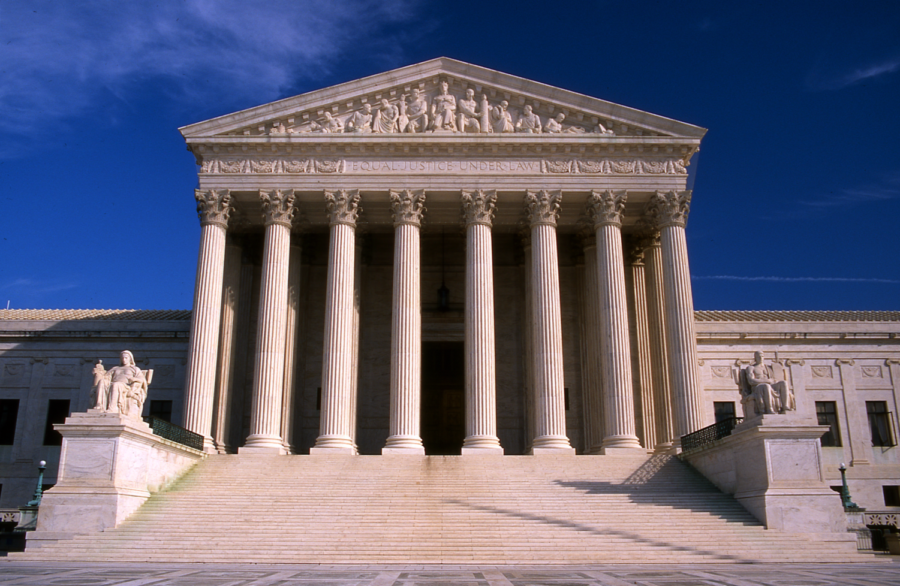Court decision could lead to ‘dry’ gay marriage counties
June 16, 2015
The Supreme Court’s decision on gay marriage later this June could make gay marriage legal across the nation, or create a patchwork by allowing local counties to decide.
Since January, the Supreme Court has been reviewing a combination of four cases from Ohio, Tennessee, Kentucky and Michigan concerning same-sex marriage, known as Obgerefell v. Hodges. Oral arguments were given on April 28, and an official ruling is expected to be made on June 29.
The case differs from the Defense Of Marriage Act case of 2013, which was more about overturning a statute. The newest case deals more with the interpretation of the constitution.
In May 2004 same-sex marriage was illegal in every state. According to a CNN poll in 2010, less than half of the country, 49 percent, said they believed same-sex couples had a constitutional right to marry.
Today, 37 states including the District of Columbia allow gay marriage; 63 percent of Americans polled now believe same-sex couples have a constitutional right to be married. Iowa was one of the early states to legalize gay marriage in April 2009.
Almost 2,000 individual clergy have signed the Freedom to Marry Act in favor of civil same-sex marriage, along with more than 300 Republicans.
If the court rules against same-sex marriage, states could have a patchwork of counties allowing gay marriage. Mack Shelley, political science professor, roughly compared it to alcohol prohibition in the 1920s and early 1930s.
When the prohibition was ended with the passage of the 21st Amendment, it gave states the choice of local option ordinances. This means a county can vote itself, through referendum, to be a dry county. Something similar could happen if a vote against marriage equality is made, Shelley said.
Another possibility from a negative vote would be the court could dissolve all gay marriages.
“That really doesn’t seem very likely,” Shelley said.
Gay couples that are already married will most likely be safe regardless of the result, but it is possible states would not have to permit future marriages if there is a vote against same-sex marriage.
Shelley predicted the ruling will come down to Justice Kennedy to break a tie. He said Kennedy will more than likely vote for marriage equality, but with some type of catch.
If the court votes in favor of same-sex marriage there would be no change in Iowa, as long as they don’t specify anything contrary to Iowa’s ruling.
ISU LGBT Ally Alliance President Kathryn Smith said discrimination, bullying and hate speech is still a concern for the LGBT community even if same-sex marriage becomes legal across the nation.
Smith said it would be unfair for states that once permitted same-sex marriage to stop allowing couples to be married.
While most ISU LGBTAA members are not married, it is something they want for their future and civil rights, Smith said.
“We have a very strong community that works together to lobby and promote LGBT rights and we will continue to do so,” Smith said.

















